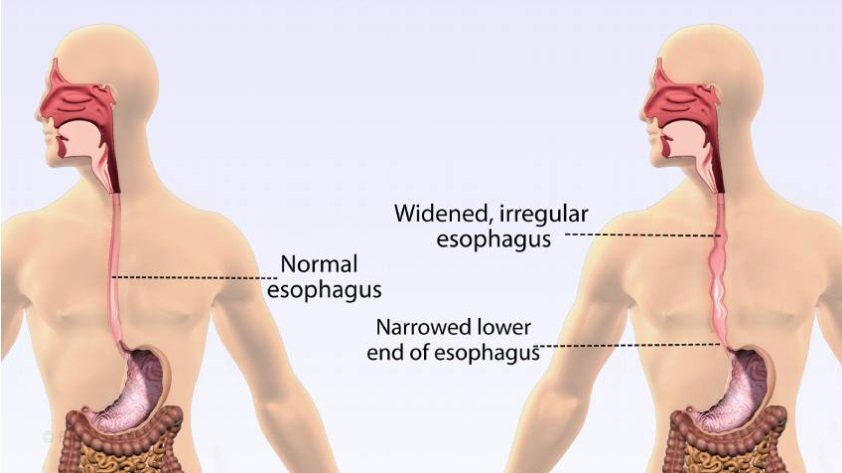Understanding Achalasia: Causes, Symptoms, and Diagnosis | Comprehensive Guide- In the intricate world of digestive disorders, Achalasia stands out as a challenging condition that affects the proper functioning of the esophagus. In this comprehensive blog article, we delve into the causes, symptoms, diagnosis, and treatment options for Achalasia. Whether you’re seeking answers or just expanding your knowledge, let’s navigate the complexities of this condition together.
Understanding Achalasia: Causes, Symptoms, and Diagnosis | Comprehensive Guide

Summary
Achalasia is a condition characterized by the difficulty of food passing through the esophagus into the stomach, leading to pain and discomfort after eating. While there is no known cure, management and treatment options are available. The diagnosis involves various tests to rule out other digestive disorders.
Facts
- Treatment aims at managing the condition; there’s no cure.
- Diagnosis is performed by medical professionals through lab tests and imaging.
- Achalasia can last several years or be a lifelong condition.
Symptoms
- Dysphagia (difficulty swallowing)
- Chest pain or discomfort
- Heartburn
- Weight loss
- Extreme pain after eating
- Regurgitation (backflow of food)
Causes and Risk Factors
- Caused by damage to esophageal nerves or mechanical obstruction.
- Factors like autoimmunity, Chagas disease, esophageal cancer, and family history may contribute.
Diagnosis:
- Common methods include Esophageal Manometry, Barium Swallow, Endoscopy, and Biopsy.
- Physical examination, blood tests, urine tests, and ultrasound can help rule out other conditions.
Treatments
- Commonly recommended treatments involve therapy.
- In severe cases, surgery may be necessary to alleviate symptoms.
Complications:
Untreated Achalasia can lead to complications such as regurgitation, aspiration, esophageal wall tearing, esophagitis, and malnutrition.
Prevention
While Achalasia may not be preventable, early detection and treatment can prevent complications.
Questions to Ask Your Doctor
- Understand the seriousness and chronic nature of the condition.
- Learn about necessary lifestyle changes and the frequency of check-ups.
- Discuss the recommended diet chart.
Conclusion
Achalasia, though challenging, can be managed effectively with early diagnosis and appropriate treatment. If you or someone you know is experiencing symptoms, seeking medical advice promptly is crucial. With advancements in medical science, there is hope for a better quality of life for those affected by this condition.
In this journey of unraveling the mysteries of Achalasia, knowledge becomes the key to empowerment. Stay informed, consult with healthcare professionals, and take proactive steps towards a healthier, more comfortable life.
ALSO READ-Abscesses: Causes, Symptoms, Diagnosis, Treatment, and Prevention
Disclaimer-For informational purposes only. Consult a medical professional for advice.